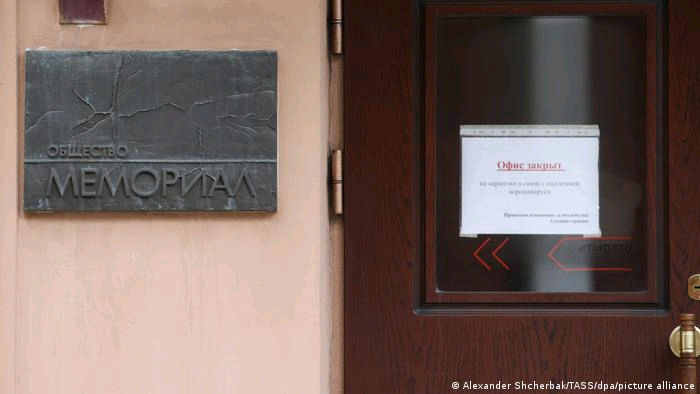The offices of Memorial, the human rights organisation that won the Nobel Peace Prize, were ordered to be taken by a Russian court on Friday.
The court’s ruling was delivered hours after it was revealed that Memorial, Ukrainian Center for Civil Liberties, and Belarusian human rights campaigner Ales Bialiatski had won this year’s renowned award.
Also read: What is Russian human rights organisation ‘Memorial’?
Russian officials formally abolished Memorial in December. The organization’s Moscow office is to “become state property,” the court said on Friday, according to the Russian news agency Interfax.
After failing to prevent the Russian judiciary from seizing its office, Memorial declared, “We are grateful to the Nobel Committee for honoring us with this award.”
One of the most well-known human rights organisations in Russia, Memorial has provided documentation of some of the crimes carried out under the Stalinist rule of the Soviet Union.
Also read: Who is Ales Bialiatski?
Memorial was charged with “rehabilitating Nazi criminals and discrediting authorities and creating a false image of the USSR,” according to a spokesperson of the general prosecutor’s office.
The human rights group, however, insisted that their work would continue despite having their premises taken.
In December 2021, the Russian Supreme Court ordered Memorial International to close, and it did so earlier this year. Despite the rulings, though, Memorial International has refused to cease operations.
Aiming to ensure that the victims of state-led tyranny under the USSR’s leadership would never be forgotten, Memorial was founded in 1987. According to the press release commemorating the Nobel Peace Prize, the organisation grew to become Russia’s greatest human rights organisation after the fall of the Soviet Union, gathering data on both historical victims and political prisoners held in Russian correctional facilities.
Also read: Elon Musk calls Ukraine Starlink outage claims affecting Russia pushback ‘bad reporting’
It has opposed combat militarism, supported human rights, and been instrumental in gathering data on war crimes committed by Russian forces and their allies during the 1990s and 2000s Chechen Wars.
The father of the Soviet hydrogen bomb and 1975 Nobel Peace Prize laureate Andrei Sakharov, who later turned against nuclear testing, is one of the memorial’s founders.
The court stated that this branch’s closure was decided upon due to contentious foreign agents legislation being broken. It added that the group is “creating a false image of the USSR as a terrorist state” and “lashing out criticism on government bodies” while misrepresenting Soviet history.
Also read: Why Belarus’ Alexander Lukashenko gifted Vladimir Putin a tractor for his 70th birthday
This law, which expanded the definition of a spy to include Russian citizens who assist foreign states and organisations, was advanced by the Russian parliament in 2012.
This law’s modifications in December 2020 made it possible to target any organisation that accepts foreign funding. According to a September article in Foreign Policy, the modifications allow the Russian government to target any particular Putin detractors, even those who use social media.
The decision to go into self-imposed exile in Britain due to extraordinary surveillance was made by an investigative journalist who worked for the BBC’s Russian language service and was labelled a “foreign agent” in October, according to a Reuters article from December 27.







